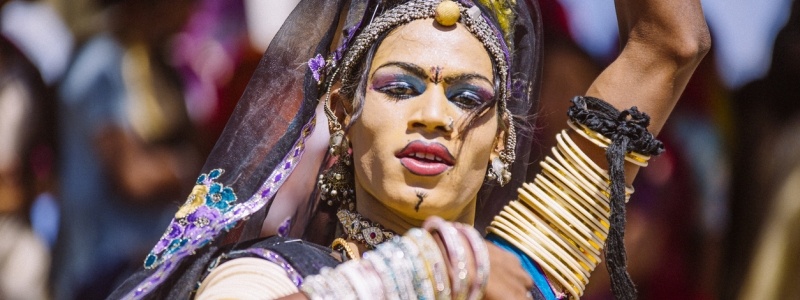The minor in Diversity Studies helps to facilitate better understanding of the diverse populations that comprise our communities, helping us to comprehend, as philosopher Martha Nussbaum says, "the motives and choices of people different from ourselves, seeing them not as forbiddingly alien or other, but as sharing many problems and possibilities with us." The minor also helps to prepare graduates to be effective members of an increasingly diverse workforce.
Diversity includes a wide variety of demographic characteristics, including race, ethnicity, gender, class, sexual orientation, and ability. Almost no one embodies the underrepresented sides of all of these categories; hence, almost everyone has much to learn about the experiences of other people.
Studying diversity should facilitate a better understanding of diverse populations. It should cultivate not just tolerance, but celebration of diversity, appreciation of difference, and a commitment to equitable treatment for all people.
There is intrinsic value in learning about and taking pride in the experience of the groups with which we identify and with which we are identified by others, and learning about and cultivating respect for the experiences of other groups that comprise our communities.
As philosopher Martha Nussbaum says in Cultivating Humanity, “To become world citizens, we must not only amass knowledge; we must also cultivate in ourselves a capacity for sympathetic imagination that will enable us to comprehend the motives and choices of people different from ourselves, seeing them not as forbiddingly alien or other, but as sharing many problems and possibilities with us.”
An equally significant reason to study diversity is that companies have a vested interest in cultivating employees who are comfortable working and living in culturally diverse environments. Pursuing a minor in diversity studies is one way students can prepare themselves to enter the contemporary workforce and to demonstrate such preparedness to prospective employers.
Diversity has been shown to contribute to (1) innovation, (2) improved group decision-making, and (3) the corporate bottom line:
- Dow’s corporate statement on diversity and inclusion outlines their public commitment to advancing inclusion and diversity in their workforce.
- Research by Dr. Samuel Sommers at Tufts University indicates that “Racial heterogeneity can have observable decision-making benefits for groups as a whole and can also lead majority individuals to demonstrate improved performance.” (“On Racial Diversity and Group Decision Making”)
- And research by Dr. Cedric Herring at the University of Illinois at Chicago indicates that “companies that are more diverse have more customers, a larger share of their markets, and a greater profitability.” (“Does Diversity Pay?”)
Being part of a diverse campus population helps to prepare graduates to be comfortable and effective from day one in working in an increasingly diverse workforce. As an article in the University of Wisconsin’s student newspaper reported, “According to major corporations that recruit from UW-Madison, campus diversity is important because it produces graduates who can work successfully in interracial groups” (The Daily Cardinal, May 2, 2003).
Core Courses
Examines communication practices and styles across selected cultures and multicultural groups, drawing on an interdisciplinary range of research fields. May address social issues, language and cultural differences, gender, race, ethnicity, class, disabilities, age, religion, family and national identity.
- Credits: 3.0; Repeatable to a Max of 6
- Lec-Rec-Lab: (0-3-0)
- Semesters Offered: On Demand
- Pre-Requisite(s): UN 1015
This course provides students with a better understanding of underrepresented populations within the United States by examining the culture and experience of African American; American Indian; Asian American; Latina/Latino American; Gay, Lesbian, Bisexual, and Transsexual; or Post-Colonial peoples.
- Credits: 3.0; Repeatable to a Max of 9
- Lec-Rec-Lab: (0-3-0)
- Semesters Offered: Spring
- Pre-Requisite(s): UN 1015
Interrelations of gender and culture, including comparative analysis of constructions of gender. May examine different societies and/or different historical periods.
- Credits: 3.0; Repeatable to a Max of 6
- Lec-Rec-Lab: (0-3-0)
- Semesters Offered: On Demand
- Pre-Requisite(s): UN 1015
Examines how individuals create and perform their social identities through and in response to language, considering social variables such as race, ethnicity, class, gender, sexuality, disability, geography, power, ideology, etc. Explores how these variables may intersect, clash, and be resolved.
- Credits: 3.0
- Lec-Rec-Lab: (0-3-0)
- Semesters Offered: On Demand
- Restrictions: May not be enrolled in one of the following Class(es): Freshman
- Pre-Requisite(s): UN 1015
Seminar focused on the rights and liberties guaranteed by US Constitutional amendments. Students learn constitutional theory and interpretation on topics of privacy, speech, media, religion, criminal justice, and gender/ethnic equality. Constitutional Law I is not required.
- Credits: 3.0
- Lec-Rec-Lab: (3-0-0)
- Semesters Offered: Spring, in even years
A critical assessment of social and cultural processes associated with group-based or categorical patterns of inequality. Examines the creation, persistence, and attempts at reduction of structured inequality based on categorical factors such as social class, race, ethnicity, and gender. May explore other significant sources of social inequality.
- Credits: 3.0
- Lec-Rec-Lab: (3-0-0)
- Semesters Offered: Fall, in odd years, Spring, in odd years
For description of the full curriculum, see the minor audit form.
